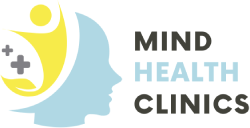Consequences of Not Treating Addiction:
Dependence on drugs can create a number of life-changing complications. They can include: mental and physical health problems., depending on the drug that is taken, communicable diseases like or Hepatitis C, accidents, and suicide. Behavioral changes may cause marital or family strife and custody issues. Work performance may decline, and you may be absent from work more often. Academic performance and motivation to excel in school may suffer. Legal issues can arise from stealing to support drug addiction, driving while under the influence of drugs or alcohol, and disputes over child custody. Financial problems could put you into debt, and could lead you into illegal or unethical behaviors.
Inquire About This Service
Diagnostic Criteria and Treatment
In many cases, it is a family member or very good friend who raises concern about the patient’s behavior (rather than the patient himself/herself doing so). The first port of call is usually a GP (general practitioner, primary care physician, family doctor). The doctor will ask several questions, including how often the substance is consumed, whether the substance use has been criticized by other people, and whether the patient feels he/she may have a problem. If the doctor suspects there is an addiction problem, the patient will be referred to a specialist. In cases of nicotine addiction, establishing whether or not there is an addiction is done at the GP-patient level. With more powerful substances there is usually an evaluation by a specialized addiction counselor, psychologist or psychiatrist.
Urine test – this may be ordered to determine whether the substance is still in the body (whether the substance has been taken recently).
Though Addiction is not the same dependence, DSM criteria for substance dependence can guide the diagnosis – a patient diagnosed with substance dependence (an addiction) must meet criteria laid out in the DSM (Diagnostic and Statistical Manual of Mental Disorders), a manual published by the American Psychiatric Association. The criteria for drug dependence that causes significant problems must include three of the following:
- Tolerance – the substance has less effect on the patient because their body has developed tolerance. They need more and more of it to get the same pleasure.
- There are physical/psychological withdrawal symptoms, or the patient takes the substance to avoid experiencing withdrawal, or the patient takes a similar substance to avoid experiencing withdrawal.
- The patient frequently takes higher-than-intended doses of the substance.
- The patient often tries to quit or cut down.
- More and more time is spent getting hold of the substance, using it, or recovering from its effects.
- The patient’s drug use causes him/her to give up social, occupational or recreational activities.
- Even though patients know it causes psychological/physical problems, they continue taking it.
The main substances of abuse are listed below. We can help treat you for these.
Tobacco (Nicotine) – Although tobacco is not illegal, its use claims more lives annually than any other addictive substance.
Alcohol – Alcohol dependency has many negative consequences. In addition to deaths from liver disease and alcohol overdose, drunk driving claims thousands of lives every year.
Opioids – Drugs like codeine, Fentanyl and Oxycodone are commonly prescribed to treat pain and also widely abused. Dependence can develop from seemingly harmless levels of use. Most patients who become addicted to prescription painkillers don’t notice they have a problem until they try to stop their use. Addiction to street opioids can follow addiction to prescription painkillers or may develop recreationally. The treatment is usually the same with medications suboxone, methadone, or morphine.
Cocaine – Although cocaine addiction rates have been dropping in America, crack cocaine, which is cheaper and more intense than regular cocaine, is responsible for many addictions and ruined lives.
Benzodiazepines – Drugs such as Valium, Xanax, Ativan and Klonopin are prescribed as mood-regulating drugs to manage conditions like anxiety and stress. People who use these drugs regularly may be unaware of their dependency until they realize they can’t function normally without them.
Stimulants – Stimulants like methamphetamines. These drugs are highly addictive, and intense withdrawal symptoms make quitting them difficult for most people.


